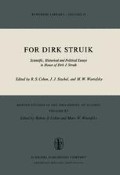Abstract
To combat romantic irrationalism in the name of art, to discredit the view that art gives access to a supersensible realm of truths in the very name of creative expression, to tear as under the platonizing tendencies of aesthetic formalisms in the cause of liberating the human sensibility, this is the historical mission of Marxist theory of art. But in undertaking this program Marxists have been far from unanimous in agreement as to the main theoretical category or categories which will yield a rich interpretation of art and aesthetic culture as a whole, and at once remain consistent with the principles of historical and dialectical materialism. Numerous concepts or categories have been proposed: particularity (Besonderheit) — Lukacs, labor-utility — Plekhanov, genotype — Caudwell, alienation-affect (Entfremdungs-Affekt) — Brecht, totality — Pascal, Form — Marcuse, and perhaps most frequently reflection (Widerspiegelung) — socialist realism in general, and Lichtheim on Lukacs. These are but a few. In this paper I will argue for the centrality and conceptual priority of ‘mediation’ (Vermittlung).1 I will try to show that the category mediation is capable of providing conceptual order and unity to Marxist inquiry.
Access this chapter
Tax calculation will be finalised at checkout
Purchases are for personal use only
Preview
Unable to display preview. Download preview PDF.
Notes
Karl Marx, A Contribution to the Critique of Political Economy, Appendix ‘An Introduction to the Critique of Political Economy’, pp. 309–312, translated by N. I. Stone, Chas. H. Kerr, Chicago, 1904.
Compare G. Lukacs, ‘Zur Philosophischen Entwicklung des jungen Marx’, Deutsche Zeitschrift für Philosophie 2 (1954) 301f.
Chapter II, ‘Die Mythologie als Vermittlungsglied’, pp. 219–227, Max Raphael Archives, [c/o R. S. Cohen] Boston University, Boston, Mass.
Friedrich Engels, ‘Engels to Heinz Starkenburg’ London, Jan. 25,1894 in Marx and Engels, Basic Writings on Politics and Philosophy, L. Feuer (ed.) New York 1959, pp. 410–412.
Friedrich Engels, ‘Engels to Franz Mehring’ Ibid., pp. 407–409.
Max Raphael, Proudhon, Marx, Picasso, trois études sur la sociologie de l’art, Editions-Excelsior, Paris, 1933, p. 131. (author’s transi.)
Max Raphael, The Demands of Art, Princeton 1968 pp. 234–238.
Max Raphael, Prehistoric Cave Paintings, New York 1945 p. 1.
Hanna Deinhard, Meaning and Expression: Toward a Sociology of Art, Boston 1970, p. 32.
Karl Marx, The Economic and Philosophic Manuscripts of 1844, New York 1964, p. 112.
Georg Lukacs, The Historical Novel, Boston 1963.
Ernst Fischer, Art Against Ideology, New York 1969.
G. W. F. Hegel, Phänomenologie des Geistes, Berlin 1845. A. Bewusstseyn, I, p. 11, (author’s transl.)
Lukacs, Die Eigenart des Aesthetischen, Neuwied 1968.
Karl Marx, The Economic and Philosophic Manuscripts of 1844, New York 1964, ‘Estranged Labor’, pp. 113–114.
G. V. Plekhanov, Art and Social Life, London 1953.
Friedrich Engels, Dialectics of Nature, New York 1940, ‘Transition from Ape to Man’, p. 281.
Christopher Caudwell (Christopher St. John Sprigge), Illusion and Reality, New York 1947, ‘The Birth of Poetry’, p. 14.
Charles Darwin, On The Origins of Emotions in Man and Animals (1872).
Author information
Authors and Affiliations
Editor information
Editors and Affiliations
Rights and permissions
Copyright information
© 1974 D. Reidel Publishing Company, Dordrecht-Holland
About this chapter
Cite this chapter
Truitt, W.H. (1974). Ideology, Expression, and Mediation. In: Cohen, R.S., Stachel, J.J., Wartofsky, M.W. (eds) For Dirk Struik. Boston Studies in the Philosophy of Science, vol 15. Springer, Dordrecht. https://doi.org/10.1007/978-94-010-2115-9_35
Download citation
DOI: https://doi.org/10.1007/978-94-010-2115-9_35
Publisher Name: Springer, Dordrecht
Print ISBN: 978-90-277-0379-8
Online ISBN: 978-94-010-2115-9
eBook Packages: Springer Book Archive

